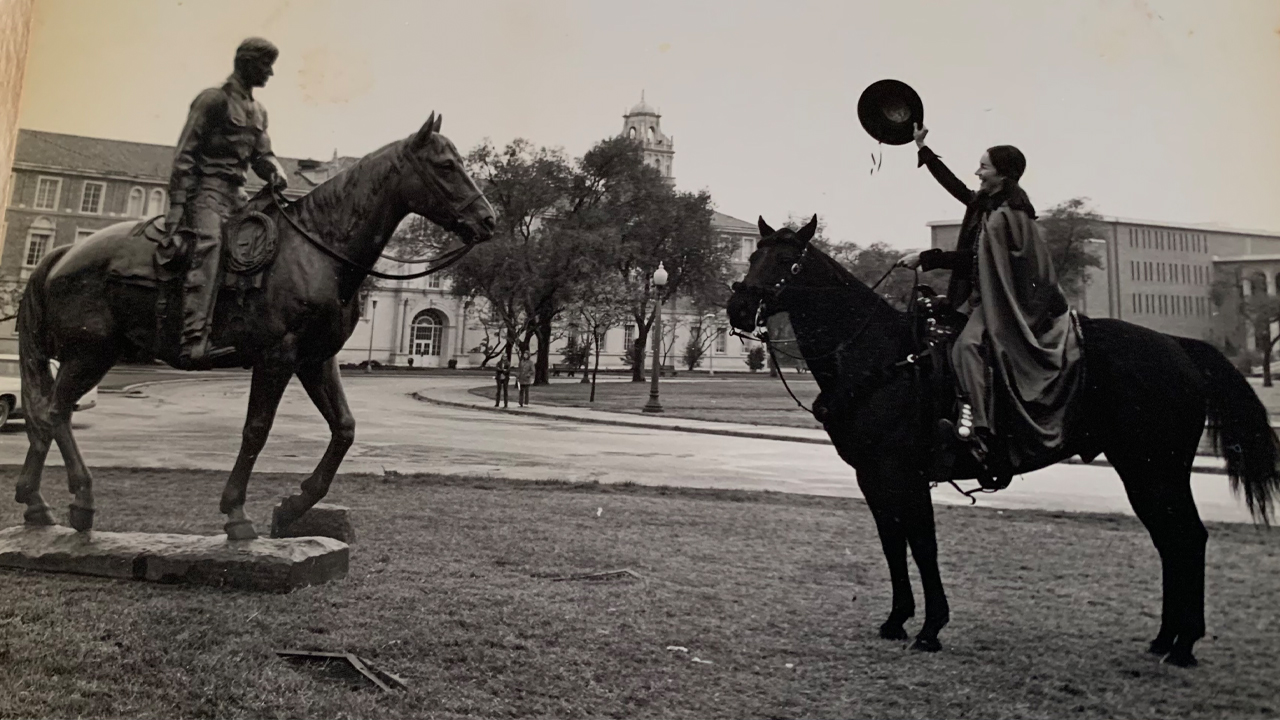Anne Lynch, the first female Masked Rider, salutes the Will Rogers statue. Courtesy photo.
Editor’s Note: This football season marks the 50th anniversary of Anne Lynch becoming the first women to saddle up as Texas Tech’s Masked Rider. Lubbock Lights Editor Terry Greenberg wrote this story and others for the Texas Tech Centennial website more than two years ago. Tech has given us permission to reprint selected stories from the site. To see all 100-plus “Impact Stories” go to 100.ttu.edu, and scroll down the home page to 100 Impact Stories, following choices from there.
Anne Lynch got off the bus from tiny farm town of Dell City, Texas, to start school at Texas Tech – her path to a career in the agriculture world. Everything was new – dorm life at Stangel Hall and friends. There were lots of people her age.
“I remember being really worried about being able to find my classroom the first day,” she said.
Lynch went to her first football game the fall of 1970.
“It was excitement everywhere. The Goin’ Band from Raiderland with Dean Killion. That music. The Spanish influence. A stadium full of very loud people – almost everybody in red – yelling and screaming. Then all the excitement of what was happening on the field. It was sensory overload – just fabulous,” said Lynch.
Then Masked Rider Tommy Martin took off on Charcoal Cody – racing around Jones Stadium.
Lynch had seen pictures of the Masked Rider on Tech literature when deciding where to go to college. But seeing the horse in front of her was transformational.
The young woman – who grew up riding horses around the Dell Valley like other kids rode bikes around their city neighborhoods – wanted to be the Masked Rider.
“I imagined what an honor it would be to ride the black horse as the mascot, an honor and a privilege,” she said. But could she? “Do they let students do that?” she wondered.
They do, she found out – but only juniors and seniors.
And only men.
Lynch set the goal aside to focus on school.
“I was taking 18 units. I had amazing professors so that’s where my focus was. I didn’t have time to worry about other things,” she said.
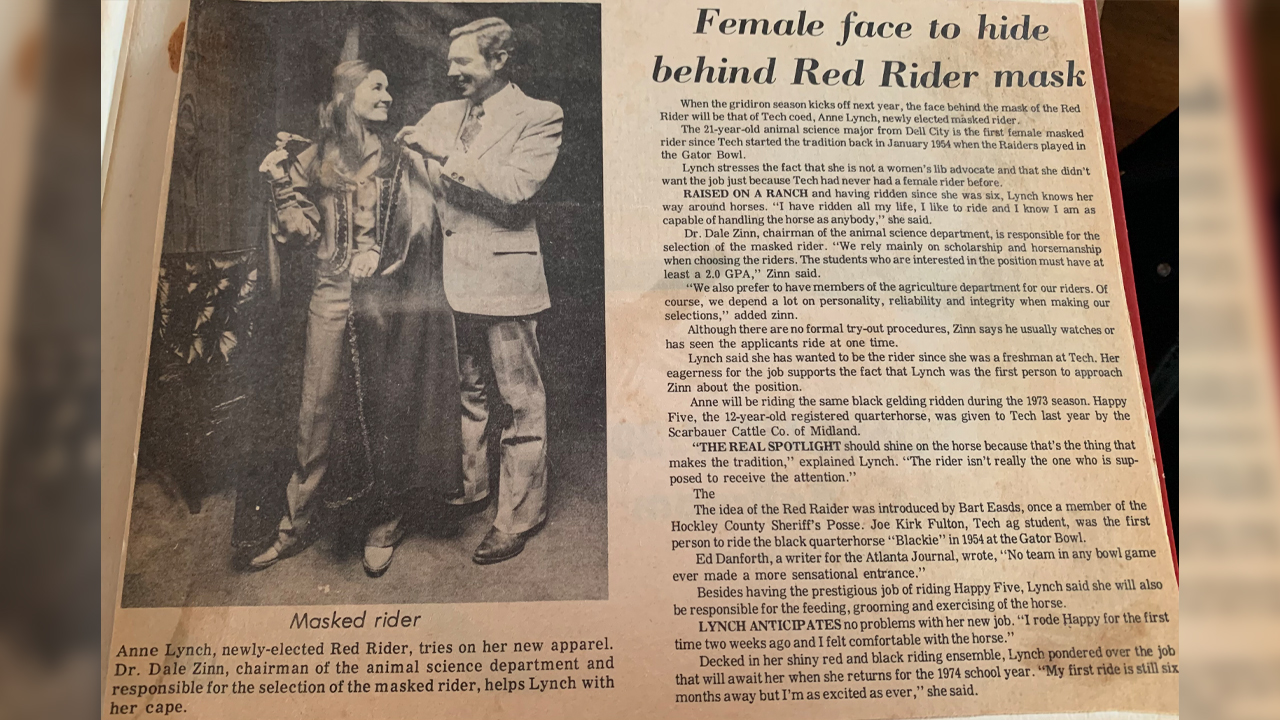
Two Years Later
Lynch went back to ask about being the Masked Rider her junior year.
“I understood the whole concept of upperclassmen. What I didn’t understand was why it could only be a guy. There were just as many women in the school. I thought I should at least be able to try, even if I didn’t win. I wanted better answers,” she said.
Lynch was raised to believe she could do anything.
She was the first Dell City girl in Future Farmers of America, even though she couldn’t be in the class with the guys. The ag teacher taught her one-to-one.
“I never heard anybody say you can’t do something,” she said.
Lynch began asking questions – all the way to the Board of Regents.
The answer?
“I was told ‘we need to look into that,’” she said.
Some time passed, then Lynch was invited to try out in late 1973. She was asked to ride a Western Pleasure Pattern at the horse barn, where she worked.
“Just putting the horse through its paces – walk, run, canter, trot, stop, back up, get off, get on. Easy,” said Lynch. She’d been riding since she was six years old when she rode Red on her family’s farm once she got her chores done.
In January, Lynch got a call saying she’d be the next Masked Rider. She was asked to come to the Administration Building and told it would be announced in the newspaper the next day.
Not everyone was thrilled.
Beloved Avalanche-Journal cartoonist Dirk West lampooned the idea. He drew a woman on a horse with curly blonde hair putting on lipstick and saying, “It was very exciting, but my girdle is killin’ me.”
The lower right corner of the ‘toon was signed “Dirk West … Male Chauvinist Pig.”
For the record, Lynch had long, dark hair.
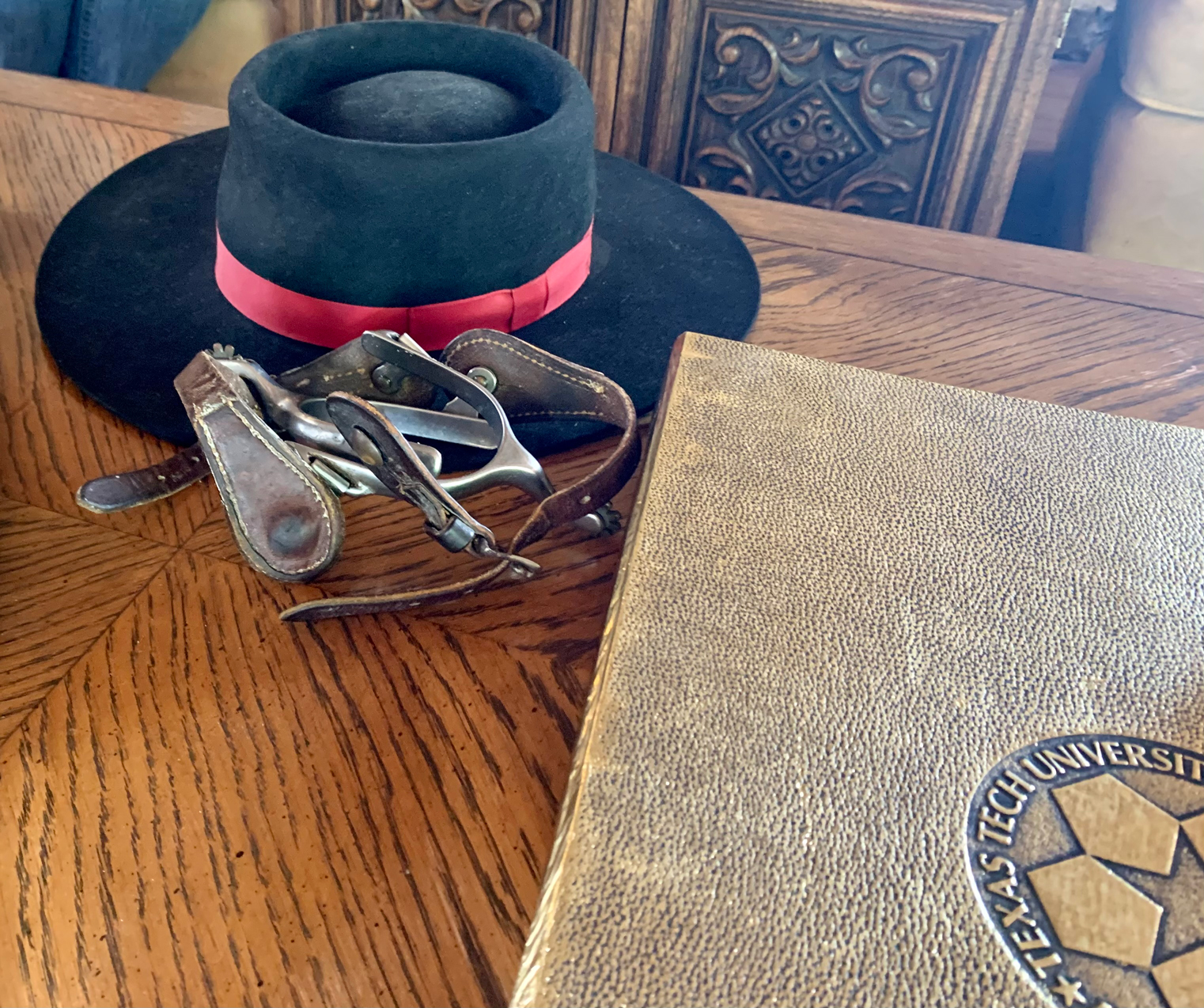
Women’s rights were a passionate topic in the 1970s. Title IX was created about the time Lynch came to Lubbock. The famous Battle of the Sexes tennis match between Billie Jean King and Bobby Riggs took place in 1973. The National Organization of Women was founded less than a decade before Lynch started asking questions.
“There were some who didn’t think it was a good idea to change that tradition. There were others who thought a girl could not hold the reins of the horse,” said Lynch, who’d been holding them for years.
“But I knew half the population of the school would like it. I didn’t know any girls against it,” she said, laughing. “There was a quote by someone saying I should step down and stop messing with tradition. There was no way I was stepping down.”
Lynch wasn’t the only trailblazing woman on campus then.
“Beverly Boyd, the first woman on the meat judging team – we were together in Stangel Hall. Betsy Bond was getting her pre-veterinarian degree from Texas Tech and one of the first women accepted into the Texas A&M Veterinary School. She became one of the first veterinary cardiologists,” said Lynch.
Once the drama dissipated, Lynch had a job to do – taking care of Happy Five, the Masked Rider’s mount.
They went to a lot of rodeos, a good recruiting tool for Tech, but she didn’t have the busy schedule Masked Riders have today.
Lynch always felt welcome at the rodeos. But at one, there was a spotlight on rider and horse while running after the National Anthem. Everything else was pitch black.
“I was so grateful Happy Five could see because I sure couldn’t,” she said.
‘He Knew Where the Finish Line Was’
On Sept. 14, 1974, Anne Lynch sat atop Happy Five in her mask, cape and hat – ready for her first run around Jones Stadium when the Red Raiders came on the field to play Iowa State, decades before both teams would become Big 12 Conference foes.
The Saddle Tramps had a sign welcoming her.
“I was doing everything to be sure I did a good job for the school and the team. I felt a little pressure to make sure it was perfect,” she said.
But in the back of her mind was a nagging thought – what if something happened and she fell off? Critics would say they were right.
“They had warned me about things coming out of the stands,” she said.
It may have been Lynch’s first season, but it was Happy Five’s second.
Right before the Red Raiders came on the field, the cheerleaders chanted:
“Two bits, four bits, six bits, a dollar – all for the Red Raiders stand up a holler.”
When the horse heard two bits, he was ready.
“He always knew a good run was coming when ‘two bits’ started. He made quite a spirited dance while I was holding him back. Then the band started,” she said.
As soon as Lynch loosened the reins, Happy Five knew what to do.
“I didn’t have to say go. He knew where the finish line was and went all the way around,” said Lynch.
Her dad was there to see his daughter’s first ride.
Tech won 24-3, then whipped Texas at home two weeks later, 26-3.
Back then, the Masked Rider made the full loop around the field at full gallop each time the Red Raiders scored.
“I ran all day long. Happy Five managed to go around cameras, cheerleaders, wires, players, band. He kept the cape flying that day,” she said.
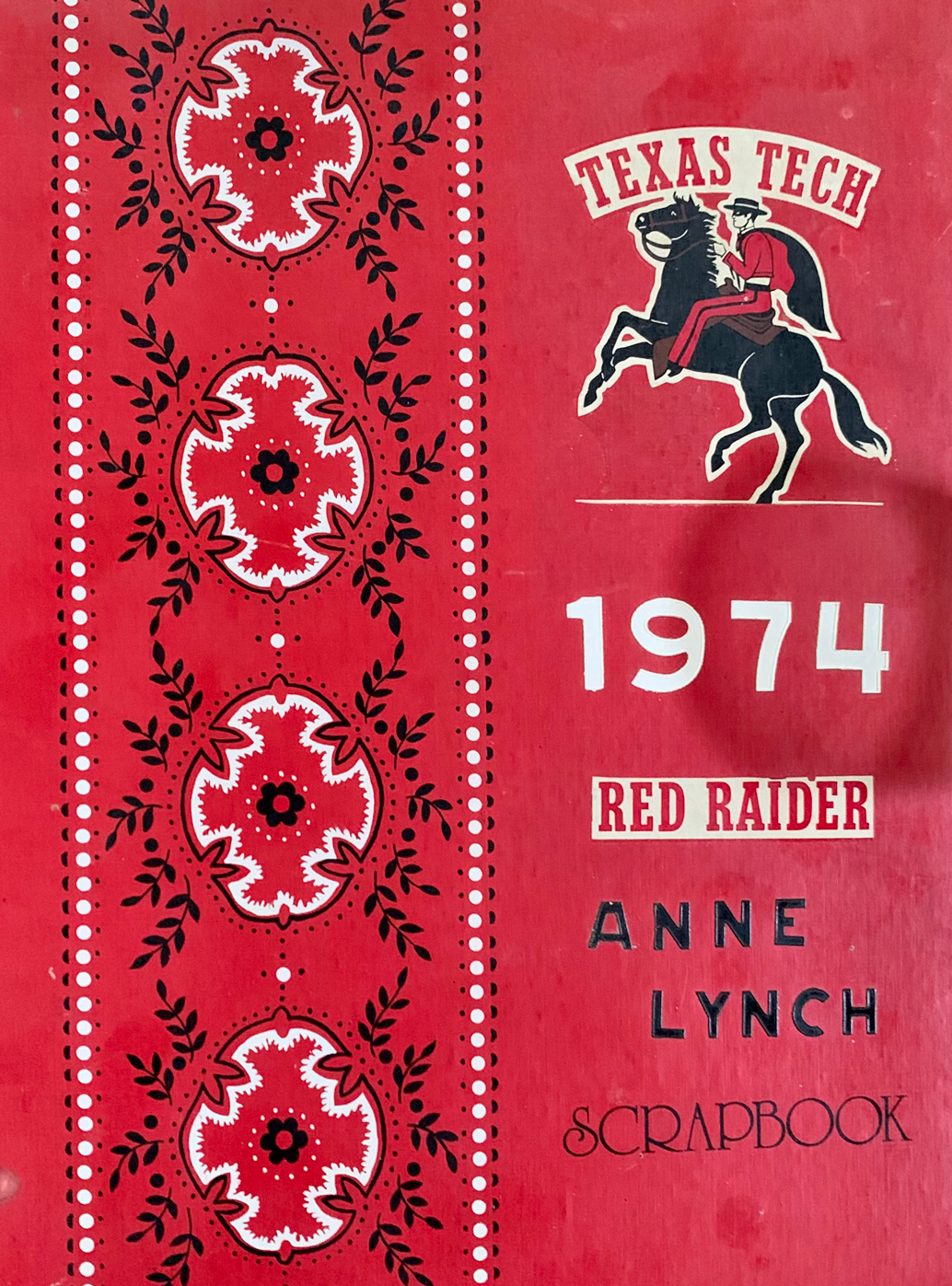
The horse was not allowed on the field at that time, using a rubber track for its famous runs.
“Mr. King, who was athletic director at the time, would not be happy if Happy Five put a horseshoe on the Astroturf,” she said.
She was getting the horse ready for a game and Happy Five’s hooves got on the playing surface.
Someone leaned out of a window and yelled, “Off the field.” It was J.T. King.
Lynch’s dad returned for the homecoming game, with special guest Bob Hope, there to give the Goin’ Band a community service award.
“There’s a picture of me with Bob Hope. He asked me to take off my mask. We shouldn’t be out of our costume, but for him…” she said. “My dad loved that; he loved Bob Hope.”
Lynch would sleep in Happy Five’s stall before games to make sure no one from a rival team messed with her buddy.
Lynch and Happy Five finished the season at the Peach Bowl in Atlanta, where Tech and Vanderbilt played to a 6-6 tie in the last game of the Jim Carlen era.
Lynch also liked horsing around around campus with her equine pal.
“Students loved it. But nobody had cell phones to take pictures. They’d just wave. I’d go see the band practicing. It was just fun to ride all over campus and be with students,” she said.
Lynch was interviewed for this story in the house she grew up in five miles south of Dell City – a house being renovated by her sister.
While she told her story, she referred to a scrapbook given to her by friends Judy and David White, who were her “amazing assistants.” Friend Mac Tull also helped during her Masked Rider year.
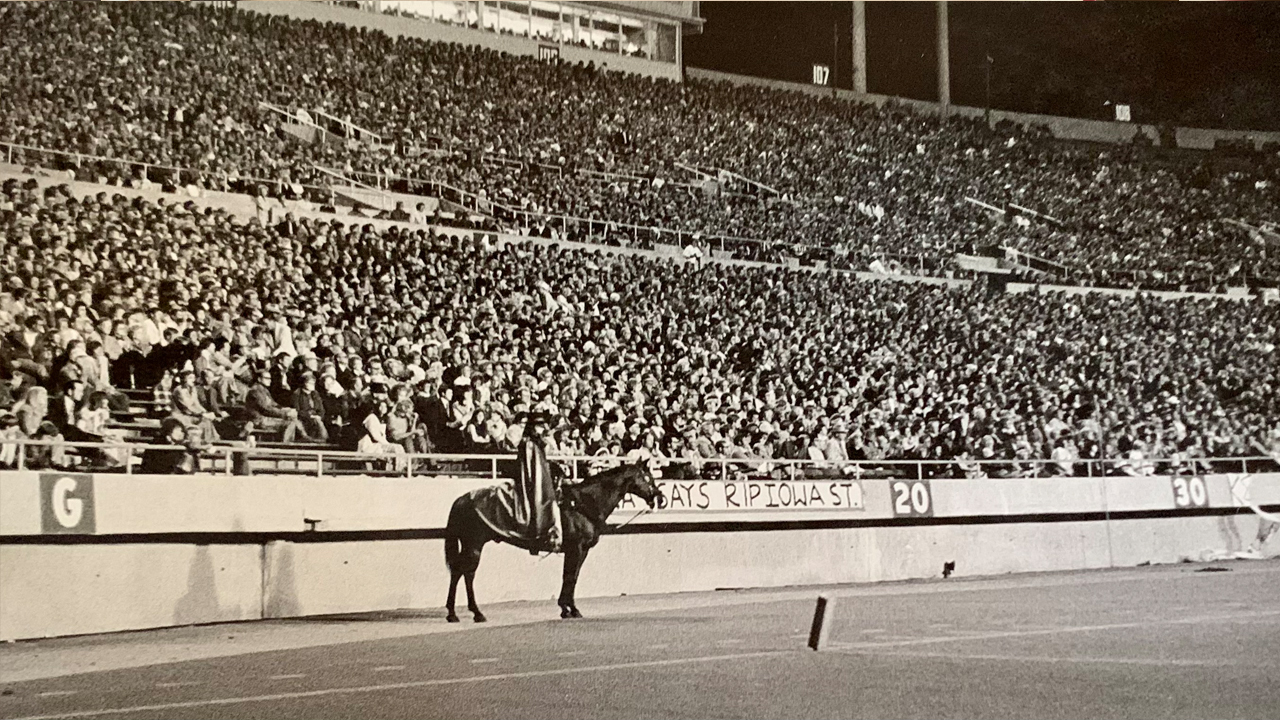
From Tech to the World
Lynch graduated from Tech with confidence and got a job selling agriculture products. She trained in Little Rock, Arkansas and was the only woman in the group. Lynch settled in Stamford, Connecticut and started doing international sales.
She’d learned Spanish growing up in Dell City, where people spoke English and Spanish.
“They gave me a territory in Latin America – so I was sent to South America, Central America and the Caribbean. It wasn’t hard because I had this incredible training,” she said.
Lynch ran into a different type of gender discrimination, though. She didn’t get to go on some sales trips because salesmen would be going and their wives didn’t want her on a trip with their husbands.
“But I was happy to be earning money and I loved working,” she said.
Lynch learned all about shoveling snow in Connecticut winters and tried to make sure her Central America trips were during the worst part of winter.
She wanted to go to California and ended up working in San Francisco for Wells Fargo Bank’s Agriculture Division.
“They managed thousands of acres of California farmland and ranchland. They needed to be out on the properties every year, negotiating leases. Most of the people in the office didn’t speak rural and didn’t want to go out there. It was perfect for me,” she said.
While in San Francisco, she met a man, married and they had four children – eventually landing in Costa Rica. What was supposed to be a few years lasted a couple of decades.
“I met the horse world there because that was my thing. Once the kids were settled in school, I got involved in riding Spanish horses and took dressage lessons. It was a whole other universe. I had been into ranch riding,” she said.
The marriage ended and Lynch eventually returned to Dell City.
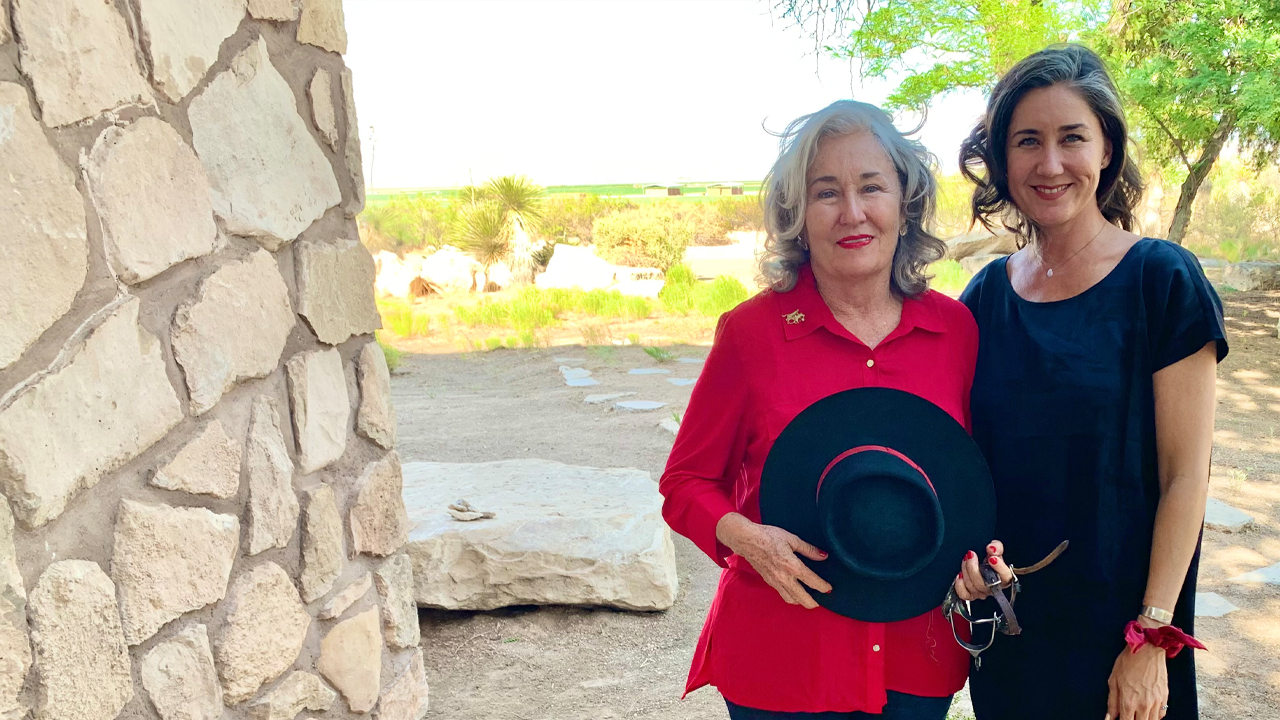
Return to Dell City
Some of her children and siblings also returned to Dell City after living all over the world.
Dell City is tucked just west of the Guadalupe Mountains. El Paso – where the Lynch family went for clothing, dental visits and school shoes – is just under 100 miles west.
“It’s a good place to live. We’re not the only ones who came back. A lot of my peers from high school have come back to Dell City. You go, look, see, work, do and then you realize it’s such a lovely valley. It’s so protected, surrounded by mountains. It’s full of water,” she said.
A city park is named for one of her aunts.
Dell City was founded in 1947 and Lynch’s family arrived three years later.
“We worked with other farmers to build the valley farming industry. There were many other farmers – it does take a village,” she said.
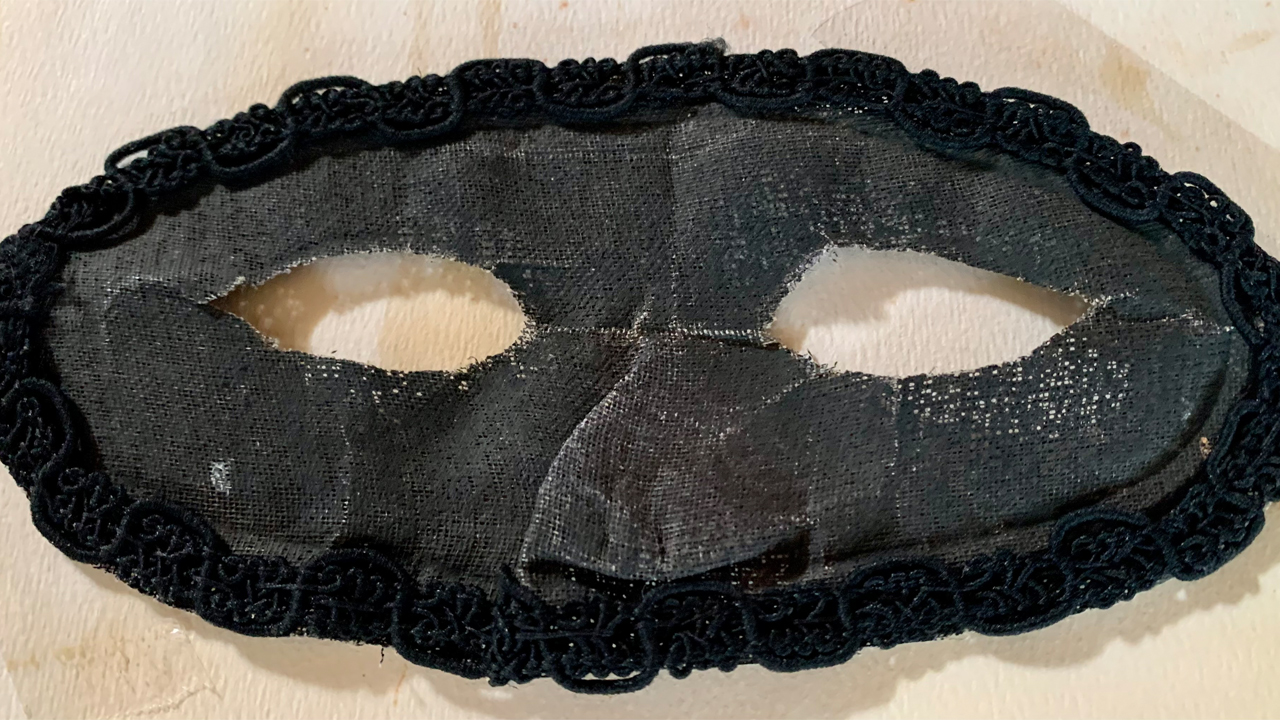
Return to Texas Tech
Living in Costa Rica made it hard to get back to her alma mater, but Lynch was there when the Masked Rider statue was dedicated just south of the Frazier Alumni Center.
“They had all the Masked Riders there,” she said. “A dad of one of the female Masked Riders came up to me and told me he was happy I rode because his daughter loved being the Masked Rider and representing the school.”
Since Lynch rode, a little more than half the Masked Riders have been women.
When she sees the horse run it’s still a thrill.
“I know what he or she is feeling. I love what they’re doing with the Masked Rider and horse now, more public appearances,” she said.
Lynch said she’s sometimes asked what made her think she could do all the things she ended up doing around the world.
“I said because nobody ever told me I couldn’t,” she said.
Comment, react or share on our Facebook post.

